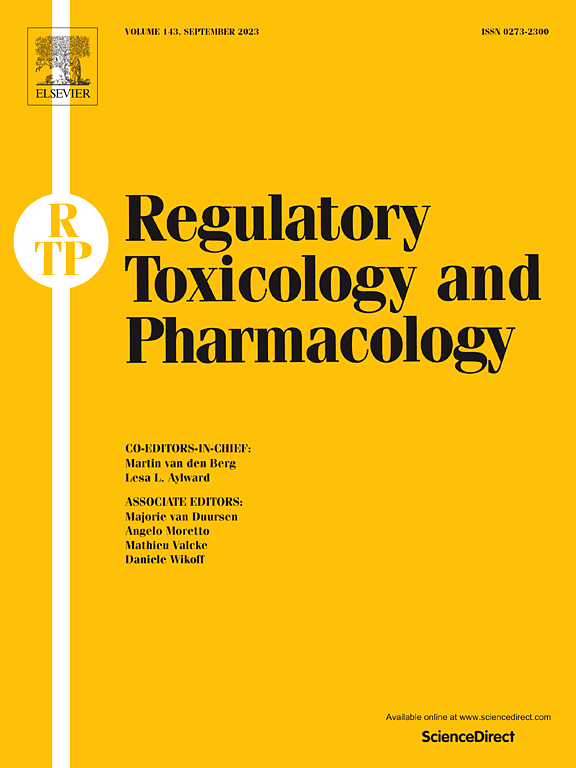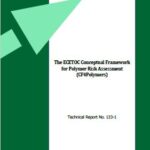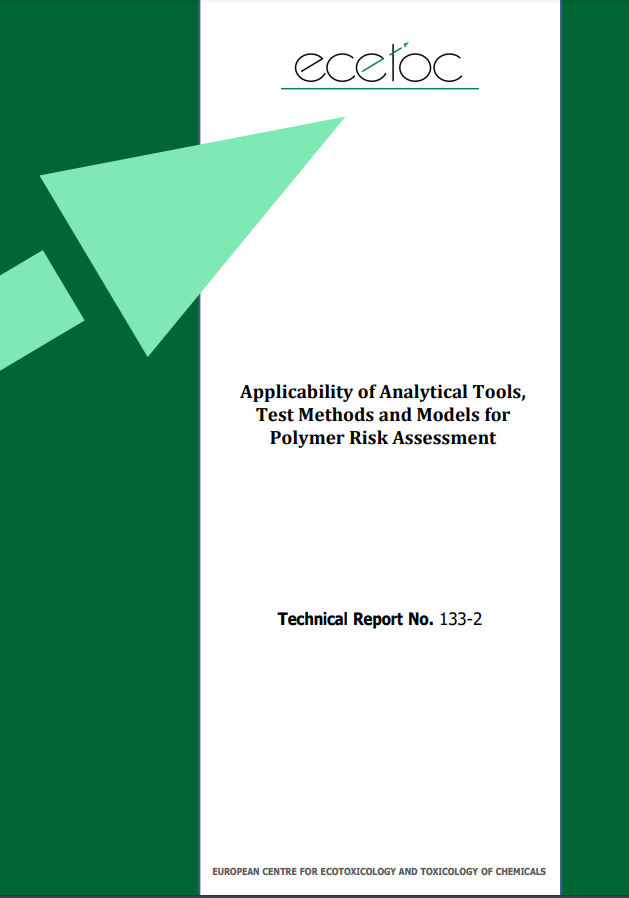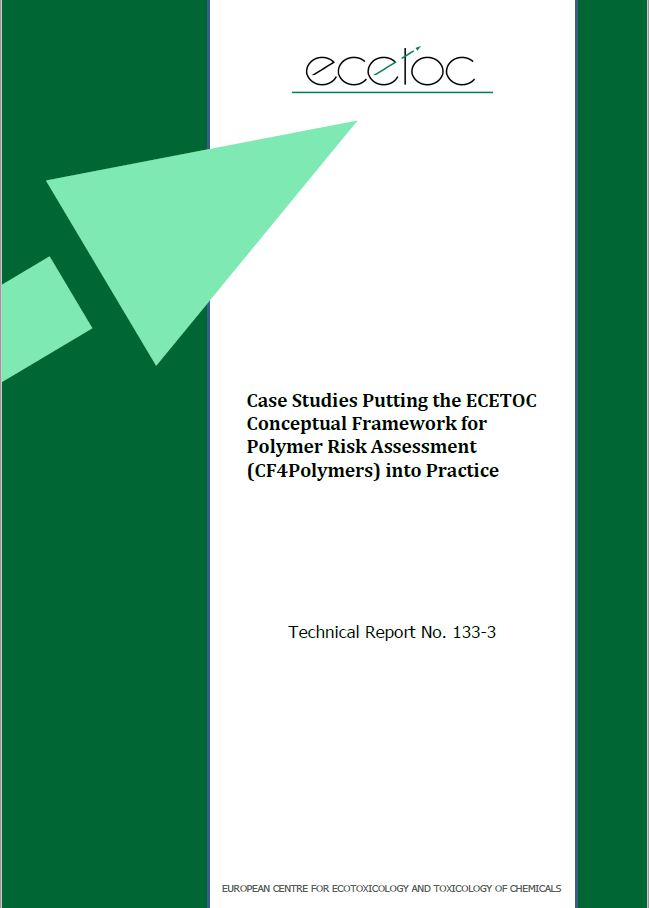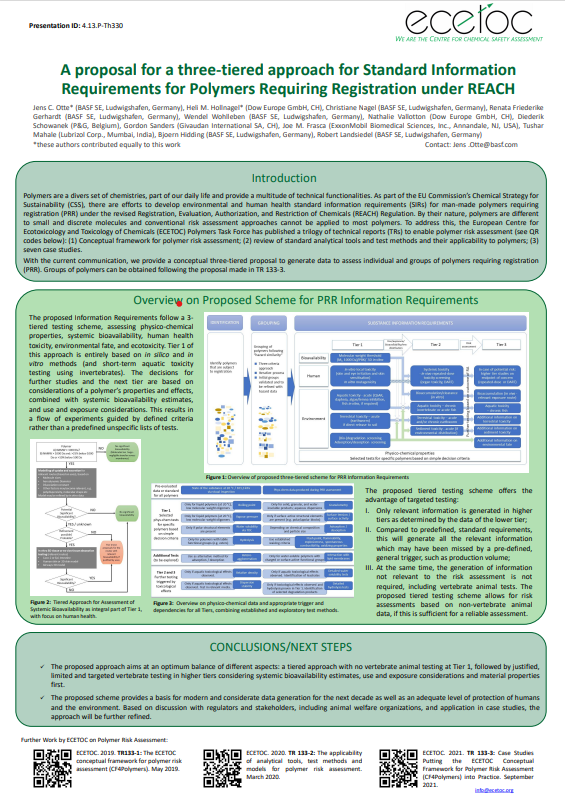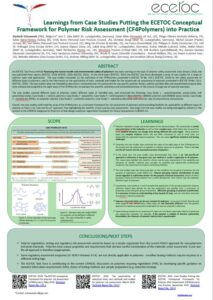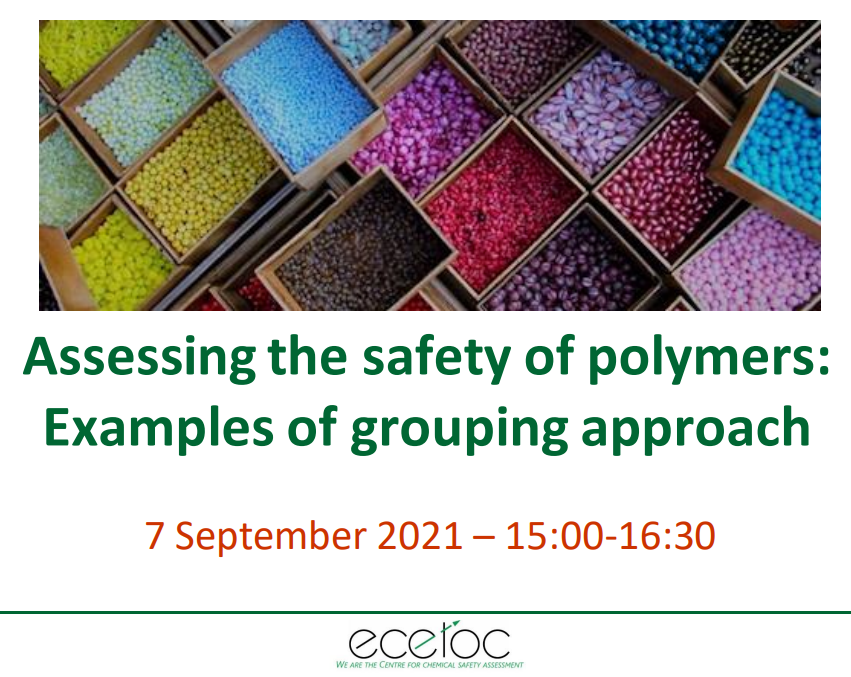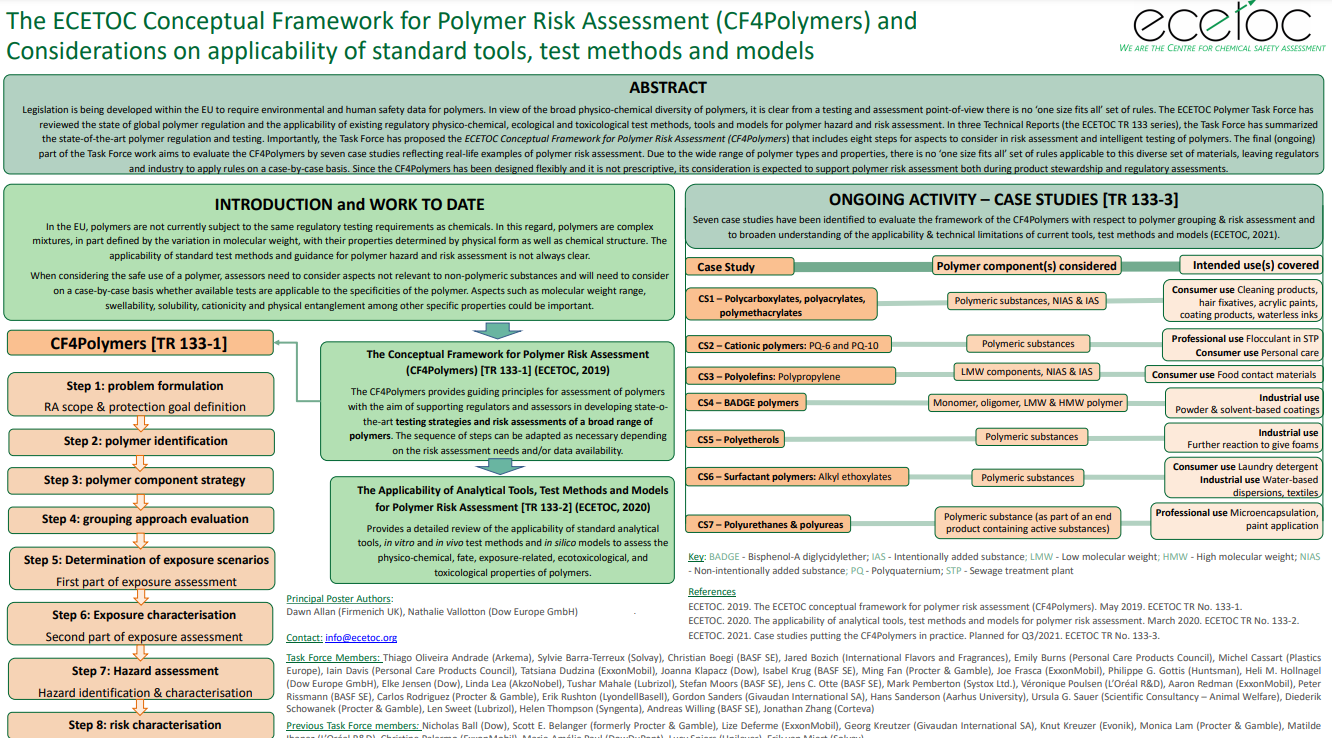Assessing the human health and environmental safety of polymers
Why
Polymers pose technical/scientific challenges for risk assessment. Polymers are versatile and complex, and generally not present as mono-constituent substances, but as complex polymer products consisting of the polymeric substance (polymeric macromolecules), intentionally added substances (IAS; e.g.stabilisers) and non-intentionally added substances (NIAS; e.g. impurities).
Conventional risk assessment approaches may not apply to the majority of polymers.
Objectives
- Considering existing risk assessment approaches (e.g. food safety regulation, EU Technical Guidance Document/REACH Guidance, international polymer assessment frameworks), develop a conceptual framework for human health and environmental safety assessment of polymers
- Liaise with stakeholders and contribute to relevant initiatives.
Timeline and Deliverables
Work started in September 2023 and the Task Force published the following Technical Reports from 2019 – 2021 ((complete reports are available for download from the column on the right)):
- TR 133-1 in May 2019 (Conceptual Framework for Polymer Risk Assessment (CF4Polymers))
- TR 133-2 in March 2020 (Applicability of analytical tools, test methods and models)
- TR 133-3 in September 2021 (Case-studies putting the CF4Polymers into practice)
The Task Force actively contributed during 2020 - 2022 to the CARACAL subgroup (CASG) on Polymers.
A manuscript on a Three-tiered approach for standard information requirements for polymers requiring registration under REACH (Otte JC and Hollnagel HM et al., 2023) was published in October 2023.
Recent updates and publications
Manuscript on SIR
Three-tiered approach for standard information requirements for polymers requiring registration under REACH
Watch the video trailer for this publication
TR 133-1
First report on the ECETOC Conceptual Framework for Polymer Risk Assessment (CF4Polymers)
TR 133-2
Second report on applicability of analytical tools, test methods and models for polymer risk assessment
TR 133-3
Third report featuring case-studies putting the CF4Polymers into practice
Presentations at SETAC Europe 2023
Presentations at SETAC Europe 2022
Watch the "Considerations and Examples" presentation
Watch the "Putting the CF4Polymers into practice" presentation
SETAC 2022 Poster on CF4Polymers Case Studies
Polymer grouping webinar (7 Sept 2021)
Download the slides from the webinar "Assessing the safety of polymers: Examples of grouping approach"
Presentations at SETAC Europe 2021
The ECETOC Conceptual Framework for Polymer Risk Assessment (CF4Polymers) and considerations on applicability of standard tools, test methods and models

